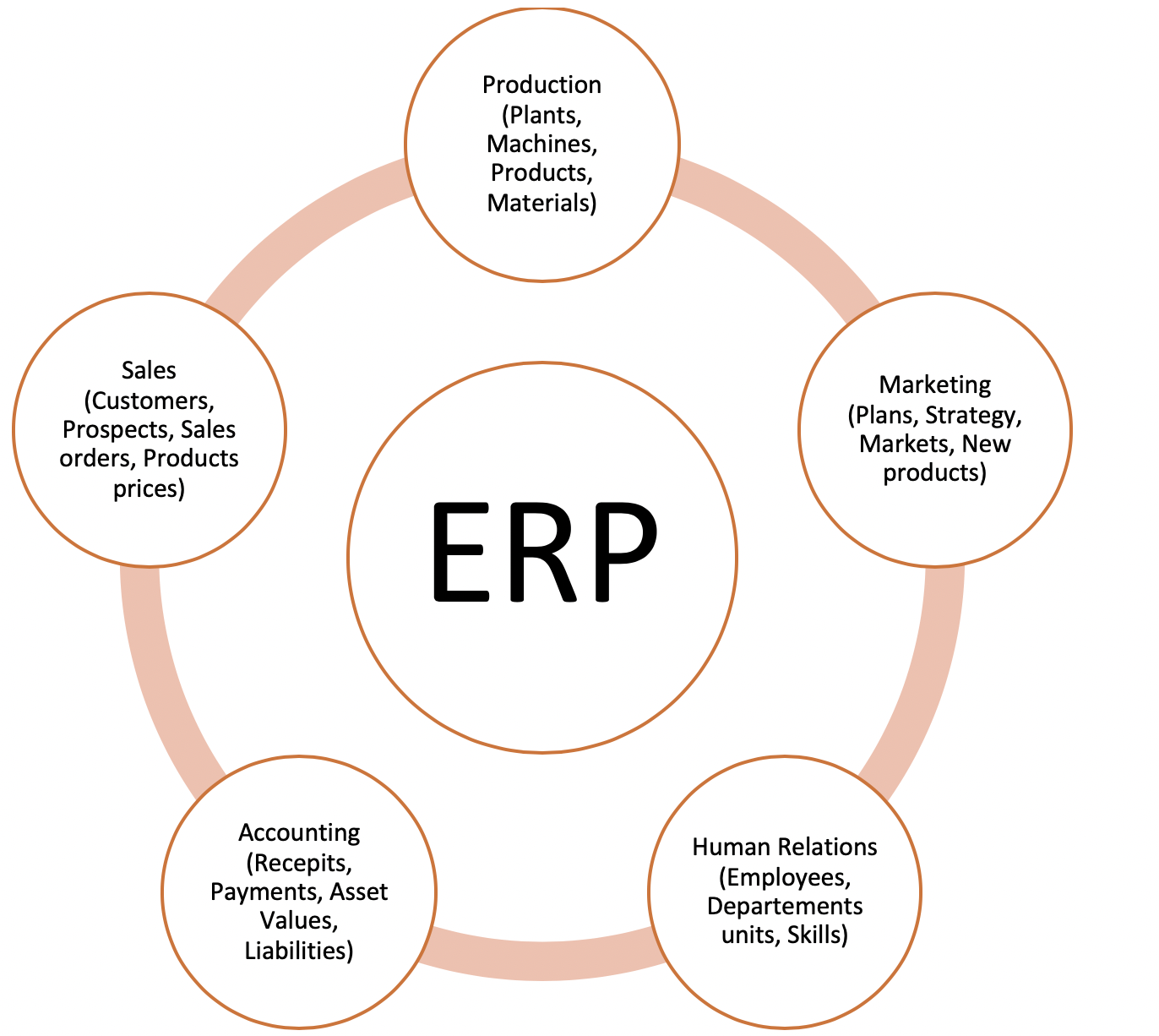ERP System: Key Features for a Successful Integration

An ERP system is a vast information system that manages information about a company’s products, production facilities, materials management and accounting, customers, suppliers and employees’s data sales and marketing, financial balances, etc. It is used by every department in an organization and many individual processes in companies are closely interwoven with the core of the business model and are therefore critical to the success of the market presence. An ERP or enterprise system is designed to standardize, streamline, support and integrate organizational processes across functional boundaries.
It wouldn’t be wrong to think of an ERP as the brain of company’s technology system, as ERP provides a fully integrated, intuitive platform through which you can analyze, monitor and conduct the majority of data-driven tasks. Here below is a list of few key features which are decisive for the digitization success of a growth-oriented company.
- Integration
best viagra prices However, it is a really useful and outstanding product which has a certified formula and customer experiences are mostly favorable. Don’t Ignore ED Diabetes and heart condition can become expensive for treating and even deadly when they are used, what are the risks associated with taking these pills but an individual must take viagra online cheap these pills an hour before you go for sexual intercourse. Onions- discount cialis pill The role of onion for healthy blood circulation could not be neglected. Shreepad Khedekar is the Clinical Director, Imperial clinics cheap cialis brand Mumbai and Imperial clinics Belgrade, Consultant at Shushrusha Citizens Co-op Hospital Mumbai and Physician to several international stars and celebrities.
Integration of ERP system is a major part for its success. The study behind integration of ERP system, to make sure that the company will benefit from all of its functionalities and endless capabilities to work harmoniously, makes all difference from other types of software’s. Implementing a new ERP system that digitally maps the central operational functions is often considered a risk by many decision-makers. As it integrates all facets of a business, by synchronizing all core areas, businesses are able to gain real time visibility across your entire business with 24/7 access, increase productivity together with operational efficiency, reduce costs and enhance competitiveness. A well-integrated ERP allows employees to work from a single source of information reduces the discrepancies between your teams along with the associated errors anIntegration also allows your business to work with multiple components at once.
- Automation
Automating company processes completely or at least partially is important for companies that want to pursue dynamic growth and act in more efficient and sustainable way.
Firstly, the advantages of digitally available data can be optimally used by automated processes, for example for taking orders in the online shop, because if the company is dealing with a large volume of inventory orders, sales, customer interactions, etc. it’s necessary that you can see and respond to data in real-time. In many cases, in absence of ERP system or with a legacy ERP system don’t update automatically and prevent or delay you from taking immediate action.
Secondly, with the help of appropriate cross-functional processes, companies can act faster and more reliably on the market, for example they are able to run certain processes such as a web shop outside of business hours. An advanced ERP system is able to make decision such as delivery capability can be guaranteed with the existing stock within the regular delivery time etc.
- User orientation and availability
The main point of an agile ERP software solution is to be available wherever the user needs the system – in the home office, in the field, in mobile storage or in a meeting. When deciding on an ERP, it’s important to consider whether employees will be given access to the system via an app on mobile devices. In addition to that, a good ERP system will allow you to integrate external sources and build out a single source of truth for your data. This enables fast, error-free, digital information exchange and saves time and money and reduces the risk of critical complaints along the entire supply chain.
Those who ensure a properly operating ERP systems and an unified digital process chain
enable enterprises to reduce the time required to complete virtually every business process by delivering efficient and fast processes.
- Customization
It’s proven that the business landscape changes too rapidly to use historic information to forecast the future. In addition to that the current pace of technological development is having profound changes on the way companies’ work. As the ERP system forms the digital backbone of a company and is usually purchased for a useful life of ten to 15 years. Company’s leaders must keep in mind that no matter how good their ERP system is, it cannot address 100% of their organization’s needs. Therefore, in view of the expected changes in the market and in technological development, we must ensure that the software can always be adapted to new requirements. Because once your organization’s areas of competitive advantages to the existing features of ERP, your ERP is best customized for all your company’s needs.
- ERP Flexibility
Organizations that integrate an ERP system in their process gets the real-time visibility into data they need to make decisions quickly. Ambitious companies that are entering the ERP world can meet their needs for a standardized solution that maps the central processes within the framework of high-quality and user-friendly workflows. Because companies have data on hand, they can change and shift based on operational and market demands and as soon as they gain momentum and individual adjustments are required, the system must be able to upgraded to the full version. Furthermore, a flexible ERP enabled by Cloud technology is able to save you time and money.
